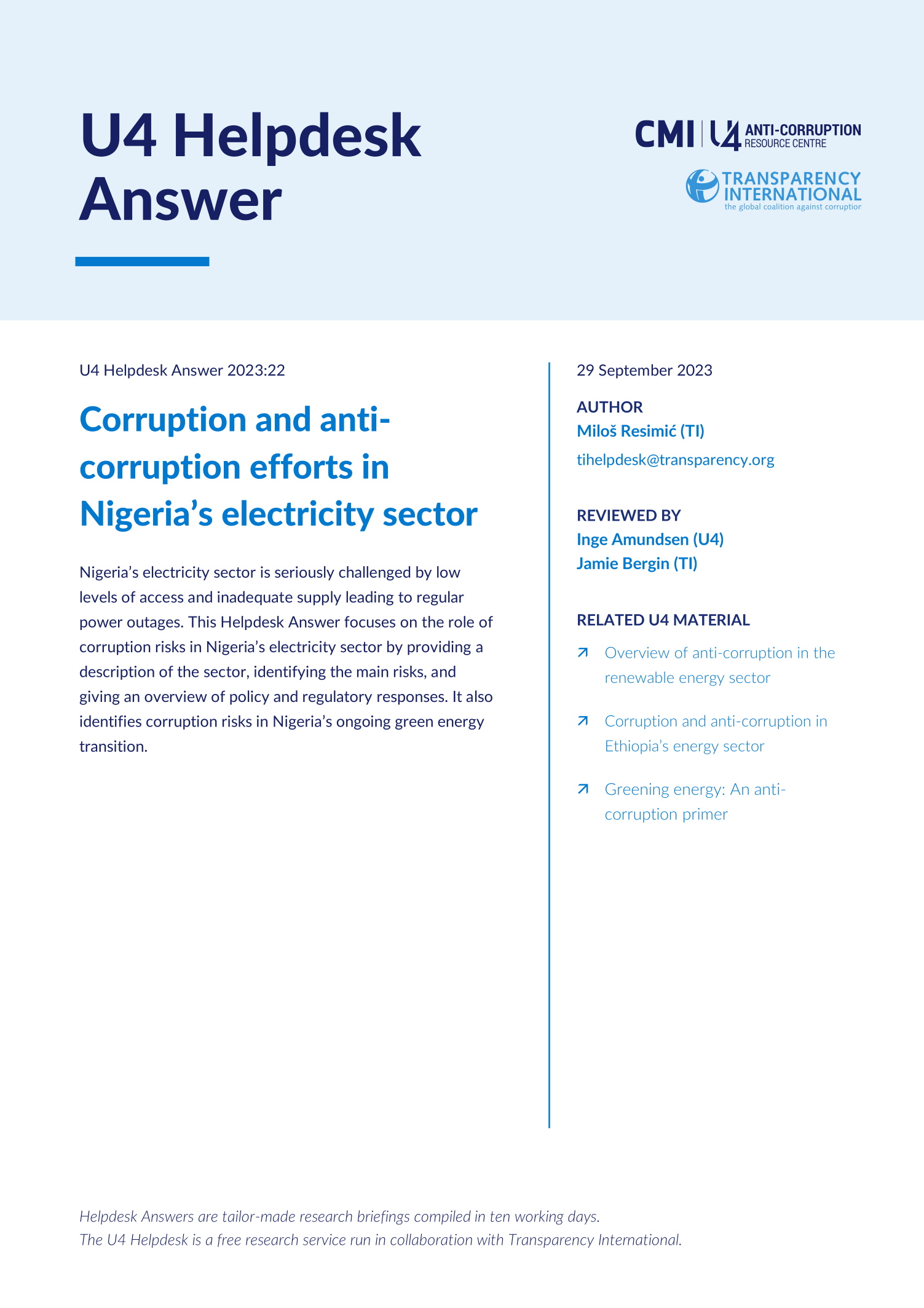Main points
- Nigeria’s electricity sector has undergone reforms in recent decades and now constitutes a complex ecosystem of different actors.
- Key forms of corruption include political corruption, petty and private-to-private forms of corruption, which are affect the electricity supply chain from the generation to distribution stages.
- Negative effects of corruption in Nigeria’s electricity sector include frequent outages and low levels of access to electricity, the adverse selection of politically connected investors and harm to consumers through demands for bribes.
- In light of the existing risk in the sector and Nigeria’s political and institutional context in general, the ongoing transition to renewable energies in Nigeria is also vulnerable to corruption risks.
- Mitigation strategies can reduce these risks and current initiatives by international donors and partners that support Nigeria’s electricity sector include measures to address corruption risks.



